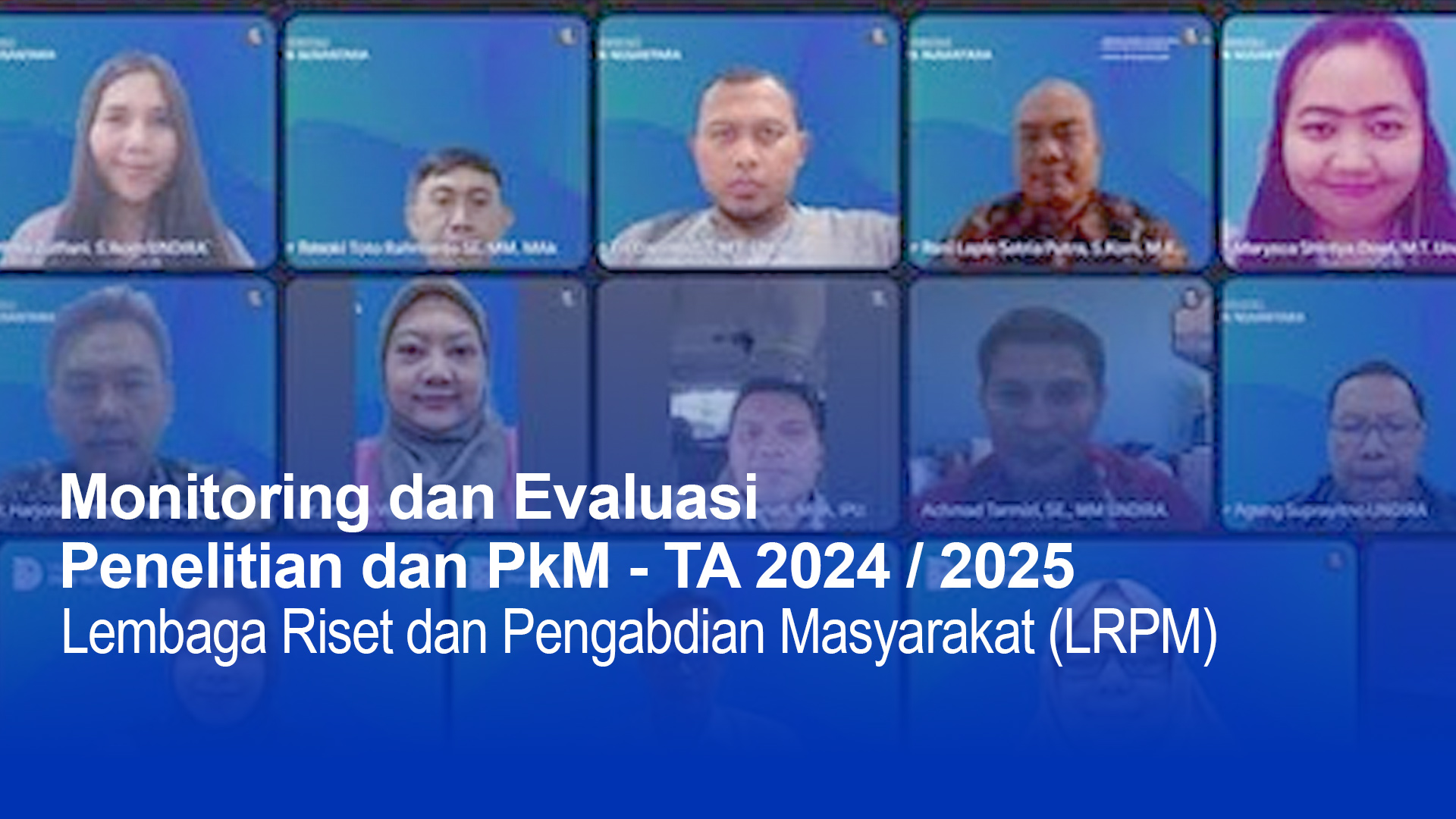Engineering and Informatics Students and Graduates, Don’t Limit Yourself to Your Major—Read This!
.jpg)
The rapid advancement of technology and information—especially with the rise of the Internet of Things (IoT) and Artificial Intelligence (AI)—has touched nearly every aspect of life, from entertainment and business to education. In this era, interconnectivity forms the backbone of the digital society, influencing the way we work, learn, and innovate.
It’s no surprise that Information Technology (IT) has become one of the most sought-after fields among younger generations. Besides offering promising long-term career prospects, the industry is also seen as stable and highly relevant to future demands, especially as many companies increasingly rely on automation and digital innovation in their operations.
At Universitas Dian Nusantara (UNDIRA), the Faculty of Engineering and Informatics (FTI) remains committed to producing graduates who are competent, creative, and adaptive to the times. Generation Z—who currently dominates university classrooms—is known to be tech-savvy, from gaming, coding, and machine learning to data management tools like SQL and PostgreSQL.
This interest often evolves into real-world capabilities and curiosity, honed through various platforms such as IT communities, bootcamps, and hackathon competitions that challenge students to solve real-life problems within limited timeframes.
FTI UNDIRA, which houses programs in Mechanical Engineering, Civil Engineering, Electrical Engineering, and Informatics Engineering, focuses not only on technical mastery but also on developing comprehensive interdisciplinary skills. The goal is for students to not only design systems but also communicate and innovate effectively across various professional domains.
During the Outcome-Based Education (OBE) Workshop held by FTI UNDIRA last June, participants were reminded of the importance of acquiring skills outside of IT, such as graphic design, public communication, management, and finance. These additional competencies provide a competitive edge and broader career opportunities in a fast-paced, dynamic world.
Just imagine: you’ve designed a database system using SQL, created a machine learning application to analyze data, or built an API to connect networks and applications. But without the ability to communicate the concept and its benefits clearly, compellingly, and accessibly, your effort might not be fully appreciated by the public or potential business partners. This is why both visual and verbal communication are crucial in presenting technological solutions effectively.
Moreover, the increasing capabilities of AI have sparked debates about how it might rival the speed and precision of IT graduates. Dean of the Faculty of Engineering and Informatics, Mrs. Desi Rahmayanti, S.Kom., M.T., has emphasized the importance of enhancing human competencies amid the rise of AI.
"Technology should enhance human ability, not make us stop thinking," she stated.
Interdisciplinary capability has now become a key focus of the Ministry of Higher Education, Science, and Technology (KEMENDIKTISAINTEK) through its flagship program, Diktisaintek Berdampak. This program promotes a higher education system that adapts to change, prioritizes flexible curricula, and ensures academic output has a tangible impact on society.
"Higher education, science, and technology play a crucial role in realizing Indonesia Emas 2045. We need to build an educational system that is equitable, relevant, and impactful," said Minister of Higher Education, Science, and Technology, Mr. Brian Yuliarto.
The launch of this program marks a transformative shift, asserting that graduates are expected not only to excel academically but also to become agents of change in society.
Amid the ongoing waves of globalization and technological advancement, engineering and informatics students must see themselves not only as system developers but also as communicative, creative, and relevant problem-solvers.
Don't hesitate to explore skill sets beyond your major. In the long run, what the world needs is not only those who understand how to build systems and networks—but also those who can communicate their value, build connections, and make a real impact.
(Sekar Ayu / Humas UNDIRA)
Press Contact :
Biro Humas & Sekretariat Universitas Dian Nusantara
Facebook : www.facebook.com/undiraofficial
Instagram : www.instagram.com/undiraofficial
Twitter : www.twitter.com/undiraofficial
www.undira.ac.id
Other

Increase Capital Market Literacy, IDX Holds Investment Gallery Award 2024
Read more
Strengthening the Quality of Community Service in Line with Tridharma Principle, LRPM UNDIRA Held a Monitoring and Evaluation Meeting 2024/2025
Read more.jpg)
Take Note! Unhealthy Habits Gen Z Should Start Minimizing
Read more
Campus Tanjung Duren
Jln. Tanjung Duren Barat II No. 1
Grogol, Jakarta Barat. 11470
Campus Green Ville
JIn. Mangga XIV No. 3
Campus Cibubur
Jln. Rawa Dolar 65
Jatiranggon Kec. Jatisampurna, Bekasi. 17432







